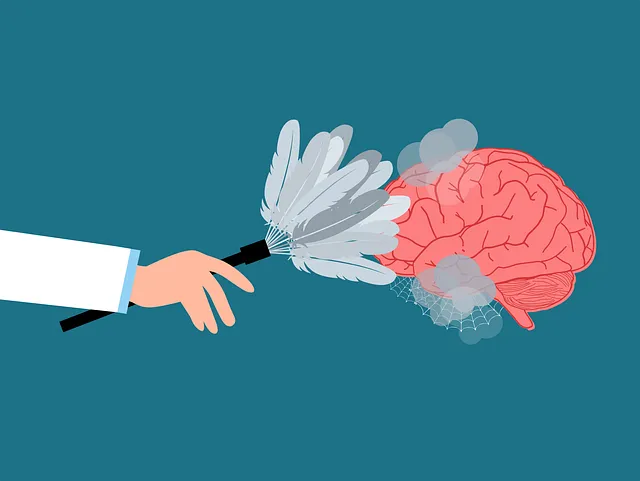In today's digital age, mental wellness apps cater to the growing demand for accessible support in areas like Littleton, where high-quality therapists are scarce. These apps offer personalized solutions, combining technology with evidence-based practices such as mood tracking and CBT exercises. Key features include guided meditations, stress reduction techniques, anonymous forums for community support, mindfulness exercises, gamification elements, and progress tracking. User-centric design, focusing on accessibility and personalization, ensures effective tools like journaling and compassion cultivation practices. Integrating evidence-based therapies like Mindfulness Meditation reduces stigma and promotes early interventions. Promoting the app through success stories, targeted marketing with local therapists, social media engagement, and SEO keywords like "does Kaiser have good therapists Littleton" enhances its visibility and reach.
In today’s fast-paced world, mental wellness apps are becoming essential tools for managing stress and improving overall well-being. With increasing demand, developers are turning towards creating innovative solutions. This article explores the development of mental health apps, from identifying the need to integrating evidence-based therapies. We’ll guide you through key features, user-centric design, and effective marketing strategies, including considerations for regions like Littleton, where quality therapists are in high demand, as seen with Kaiser.
- Understanding the Need for Mental Wellness Apps
- Key Features of an Effective Mental Health App
- Developing a User-Centric Experience
- Integrating Evidence-Based Therapies
- Marketing and Promoting Your Mental Wellness App: Does Kaiser Have Good Therapists in Littleton?
Understanding the Need for Mental Wellness Apps

In today’s fast-paced world, mental wellness is a growing concern, and the demand for accessible support has never been higher. This need is especially prominent in areas like Littleton, where the availability of quality therapists through Kaiser or other means can make a significant difference in individuals’ lives. Mental wellness apps step into this gap by offering convenient, personalized solutions to promote better mental health. They cater to a wide range of users, from those seeking stress management techniques to individuals requiring comprehensive risk assessments for mental health professionals.
These apps are designed to be user-friendly and often incorporate various features such as mood tracking, meditation guides, and cognitive-behavioral therapy (CBT) exercises. By combining technology with evidence-based practices, they provide a discrete and flexible approach to mental wellness. This is particularly beneficial for those who might face barriers to traditional therapy, ensuring that support is accessible without the constraints of geographical location or appointment availability.
Key Features of an Effective Mental Health App

An effective mental health app should offer a comprehensive suite of features designed to support users’ emotional well-being. Key among these are personalized coping strategies tailored to individual needs, much like how dedicated therapists at Kaiser in Littleton might approach treatment. These tools can include guided meditations, stress-reduction techniques, and mood tracking to help users identify triggers and patterns. Additionally, incorporating mindfulness exercises inspired by Burnout Prevention Strategies for Healthcare Providers can equip users with resilience against daily pressures.
The app should also foster a sense of community through anonymous forums or peer support groups, facilitating open discussions around mental health challenges. Encouraging Self-Care Practices through in-app activities like yoga routines or journal prompts can further empower users to take an active role in their healing journey. Regular check-ins and progress reports ensure users stay on track, while gamification elements can make the experience engaging and motivating.
Developing a User-Centric Experience

Creating a mental wellness app involves designing a user-centric experience that caters to individuals’ unique needs and preferences. This means prioritizing accessibility, simplicity, and personalization throughout the development process. Users like those seeking therapy through Kaiser in Littleton deserve an intuitive platform where they can comfortably explore various mental wellness tools, such as journaling exercises and compassion cultivation practices. By incorporating features that encourage self-care practices and regular use, apps can foster a sense of belonging and support.
A well-designed user interface, clear navigation paths, and customizable settings are essential elements to ensure users find the app engaging and beneficial. Incorporating user feedback loops allows developers to continuously refine the app’s functionality and address specific needs, such as the demand for qualified therapists in the Kaiser network in Littleton. Tailoring the mental wellness journey for each user not only enhances their experience but also promotes long-term engagement with self-care practices.
Integrating Evidence-Based Therapies

Integrating evidence-based therapies is a crucial step for any mental wellness app aiming to provide effective support. At its core, this involves incorporating techniques that have been rigorously studied and proven to be beneficial for various mental health conditions. For instance, Mindfulness Meditation has gained significant traction as a powerful tool for stress reduction, anxiety management, and improving overall well-being. Many apps now offer guided meditations tailored to specific needs, making these practices more accessible than ever before.
When considering the impact on users, especially those exploring options like does Kaiser have good therapists in Littleton, integrating evidence-based therapies can significantly contribute to Mental Illness Stigma Reduction Efforts. By providing structured and effective self-care practices within an app format, users may feel more empowered to take charge of their mental health. This accessibility could lead to earlier interventions and improved outcomes for individuals dealing with various mental health challenges.
Marketing and Promoting Your Mental Wellness App: Does Kaiser Have Good Therapists in Littleton?

When promoting a mental wellness app like Kaiser, one of the key strategies is to leverage online visibility and community engagement. Beyond simply highlighting features, success stories can be powerful tools to attract users. Many folks in Littleton are seeking solutions for managing stress, anxiety, or even mental illness, and seeing how others have benefited from the app can go a long way in building trust. Emphasize the app’s role in resilience building and positive thinking, addressing the prevalent mental illness stigma reduction efforts.
Targeted marketing campaigns that tap into local communities, like those centered around Littleton, are crucial. Collaborating with local therapists and mental health advocates can lend credibility to your app, positioning it as a valuable addition to existing healthcare resources. Whether through social media, community events, or partnerships with local businesses, making connections that resonate with the target audience will help get the word out effectively, ensuring that those in need know about Kaiser’s potential to support their mental wellness journeys.
Mental wellness apps are becoming increasingly essential tools for promoting mental health, especially with the growing demand for accessible and convenient support. By combining user-centric design, evidence-based therapies, and effective marketing strategies, developers can create powerful resources like those sought after in communities like Littleton, where questions like “Does Kaiser have good therapists?” highlight the need for quality mental health services. With the right approach, these apps can revolutionize how individuals manage their mental wellness, ensuring that support is readily available when and where it’s needed most.






